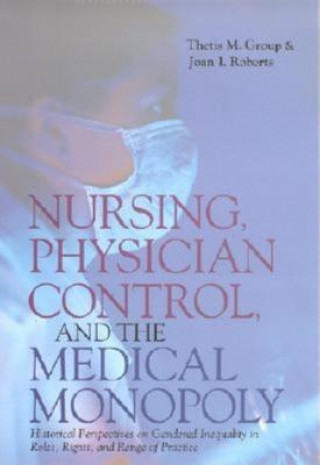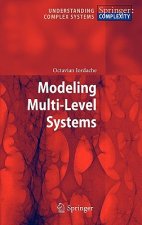
Consegna
Guida all'acquisto





Non ti piace? Non importa! Puoi restituircelo entro 30 giorni
 Buono sconto
Di qualsiasi valore
Buono sconto
Di qualsiasi valore
Non puoi sbagliarti con un buono regalo. Con il buono regalo, il destinatario può scegliere qualsiasi prodotto della nostra offerta.
Nursing, Physician Control, and the Medical Monopoly
 Inglese
Inglese
 132 b
132 b
30 giorni per il reso
Potrebbe interessarti anche


Nursing, Physician Control, and the Medical Monopoly traces the efforts by physicians over time to achieve a monopoly in health care, often by subordinating nurses - their only genuine competitor. Efforts by nurses to reform many aspects of health care have been repeatedly opposed by physicians whose primary interest has been to achieve total control of the health care "system," often to the detriment of patients' health and safety. In Part I, Thetis M. Group and Joan I. Roberts present the activities of early women healers and nurses. The authors document the erosion of these women's independence and influence, as increasingly they were subordinated to physician control and authority. In Part II they examine nurse-physician relations from the early 1900s onward. The sexist domination of nursing by medicine was neither haphazard nor accidental, but a structured and institutionalised phenomenon. Efforts by nurses to achieve greater autonomy were often blocked by hospital administrators and organised medicine. The consolidation of the medical monopoly during the 1920s and 1930s, along with the waning of feminism, led to the concretisation of gendered stereotyped roles in nursing and medicine. The growing unease in nurse-physician relations escalated from the 1940s to the 1960s; the growth and complexity of the health-care industry, expanding scientific knowledge, and increasing physician specialisation all created heavy demands on nurses. Conflict between organised medicine and nursing entered a public, open phase in the late 1960s and 1970s when medicine unilaterally created the physician's assistant, countered by nursing's development of the advanced nurse practitioner. The issue of nursing autonomy was directly related to the re-emergence of feminism, bringing into question the stereotype of nurse as physician's loyal "right arm." At the same time, consumers were increasingly unhappy with the inadequate, fragmented, and costly health care system. The gender stereotypes that remained central to nurse-physician relations in the 1980s and into the 1990s are documented in Part III. Various media portrayals still show nurses as subservient to physicians. Nevertheless, nurses have become more outspoken in their criticisms of organised medicine, lobbying to change antitrust laws, proving their cost effectiveness, and documenting the quality of their patient care, consistently equal to or better than that of physicians. Finally, Thetis Group and Joan Roberts examine the results of the medical monopoly, from the impact on patients' health and safety, to the development of HMOs and the current overpriced, poorly co-ordinated and fragmented health care system. Medicine's monopoly of health care and its domination over nursing has made it difficult for nurses to enact their own values, change state license and practice laws, and broaden their access to and practice with patients. Their commendable efforts to gain more autonomy and independence continue into the 21st century.
Informazioni sul libro
 Inglese
Inglese


 Contatto
Contatto Come acquistare
Come acquistare






























